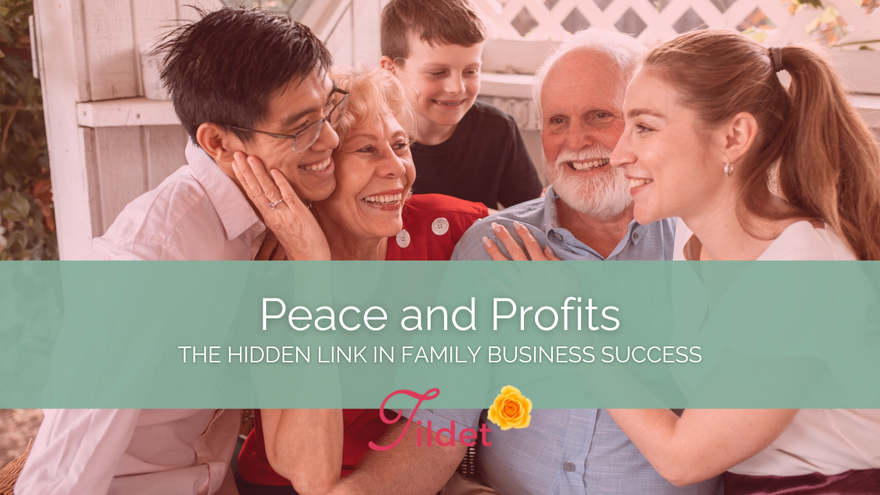
Why Emotional Fluency Is a Business Strategy
Success in a family business isn’t just about the numbers. It’s about what happens around the table—where decisions are made, roles are negotiated, and relationships are tested.
And yet, many leaders focus so heavily on operational goals that they overlook the emotional dynamics shaping everything behind the scenes.
This is where emotional fluency becomes not just a personal asset—but a strategic advantage.
Because when we know how to name what we’re feeling, when we’re able to listen without judgment and speak without blame, we transform conflict into clarity and tension into trust. That emotional intelligence is the foundation for sustainable success.
Balancing Legacy, Leadership, and Love
A family business often holds more than products and profit—it holds history. Values passed down. Expectations inherited. Dreams built generation by generation.
But that legacy can come with weight. One generation may resist change. Another may crave innovation. One may lead with loyalty. Another with purpose.
When those values go unnamed, they collide. But when we name them—when we make space to honor what each generation brings—we move from resistance to respect. From misalignment to shared meaning.
It’s not about choosing between tradition and transformation. It’s about creating a business that’s strong enough to hold both.
From Reactivity to Rhythm: Embedding Healthy Communication
One powerful shift I guide families through is moving from reactive conversations to intentional rhythm.
This might look like:
-
Regular family meetings with clear communication agreements
-
Shared decision-making practices grounded in mutual respect
-
Tools like DISC or CliftonStrengths to understand different leadership styles
When communication becomes a rhythm—not a reaction—we create space for honesty without hostility. We catch tension early. We protect both peace and performance.
And most importantly, we stop treating every conflict as a crisis—and start treating it as an opportunity to reconnect.
Building a Culture Where Peace Fuels Profit
The families I work with aren’t perfect.
They disagree. They struggle. But they keep showing up—with care, with courage, and with commitment.
They’ve seen what happens when communication breaks down—and what becomes possible when it’s restored.
And they’ve learned something profound:
When your culture is grounded in clarity, when every voice matters, when emotional safety is prioritized—profitability follows.
Because people who feel heard work better. Lead better. Stay longer. Create more.
Peace isn’t separate from business success. It is the root of it.
![]()
If you’re wondering where your family business stands today, I invite you to take the Family Business Health Assessment. It’s a simple, reflective quiz to help you spot strengths and uncover what might need more attention.
Because peace at the table and profits to the balance sheet don’t live in separate rooms.
They live in every conversation you’re brave enough to have.

Comments